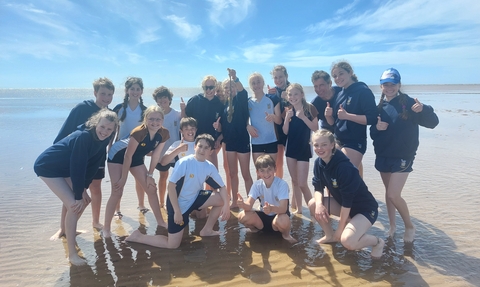
Beach School
Welcome to Fylde Beach School: Nature-Based Learning for All Ages
Beach School is an unforgettable way for children to immerse themselves in the wonders of the UK's seas & beaches. We aim to improve students' knowledge about their local coastal environment by connecting them with nature; opening their eyes to this amazing habitat and inspiring them to care for our coasts. Nestled along the stunning Fylde Coast, our Beach School offers a unique educational experience that brings together the wonders of the beach and the joys of learning.

About Us
Beach School on the Fylde coast is a partnership project between The Wildlife Trust for Lancashire, Manchester and North Merseyside and Park View 4U in Lytham, with support from Fylde Council.
At Fylde Beach School, we believe that learning should be an adventure that connects us to the natural world. Our mission is to inspire a lifelong connection between people and the natural world, fostering a sense of wonder, curiosity, and respect for the environment.
Our Beach School programme takes place on the beautiful beaches of the Fylde coast and runs term-term throughout the year. Choose from one session for a half-day visit or a combination of any two sessions to create a full day visit with your class.
Beach School can be tailored to suit students of any age! From Early Years Foundation Stage (EYFS) up to A-Level and university students. Activities are linked to the National Curriculum and can enhance classroom learning. Nationally accredited and acknowledged Beach School sessions are delivered by fully qualified and experienced staff.

Session Topics
Click on the tabs below to find out more information about the different types of sessions we can offer.
Living Things & Their Habitats
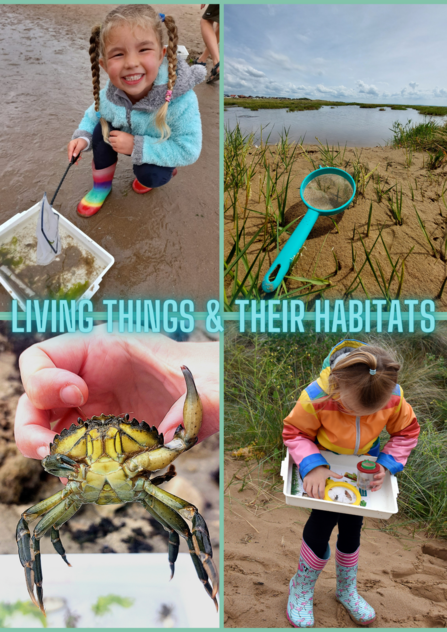
Explore the coastal habitats and wildlife that inhabit them. Go beachcombing on the strandline, minibeast hunting in the sand dunes and mud dipping in the saltmarsh. Investigate things that are living, once lived in or dead. Learn how the animals are adapted to living in the different environments.
Geographical features of a coastline
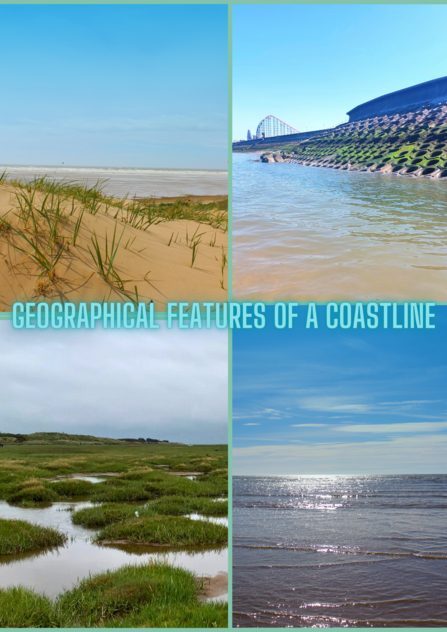
Look at the coastal area and discuss what you can see. Are these things human or physical/natural or man-made? Have they always been there? Do they change with time? Learn about coastal processes.
Orienteering
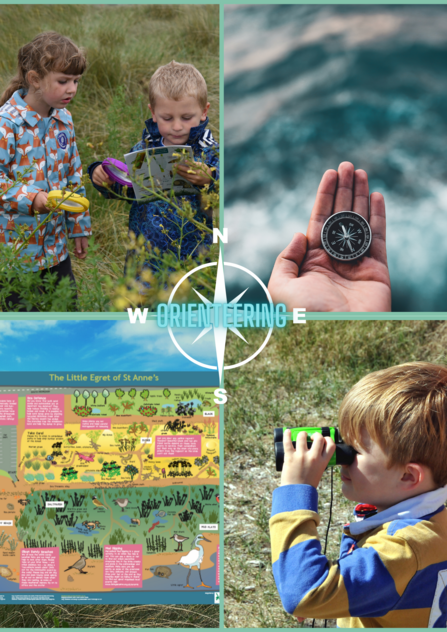
Learn how to use a compass to plot North, East, South and West. Use a map of the area to navigate your way around different coastal habitats. Collect clues from different checkpoints - What else will you find along the way?
Beach safety
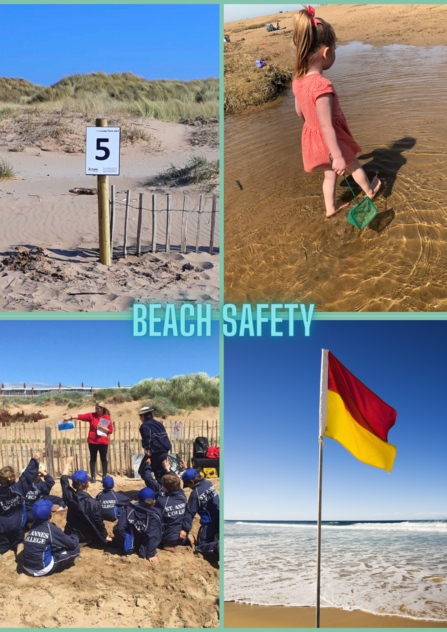
Tides and waves - How do tides work? How often do they come in/out? What should you do if you're accidently caught out by the tide.
Beach flags - what do the different types of beach flags mean? When is it OK to paddle in the sea?
Beach signs - what do the numbers on the beach signs mean and how might they help you if you're in danger?
Busy beaches - What to do if you accidently get separated from your friends/family/school or group.
Pressures on the marine environment
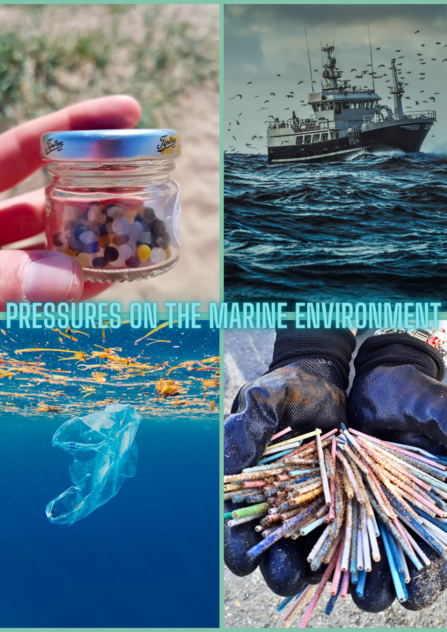
Through a variety of exciting games and activities, learn about marine pollution (including plastics!), over-fishing, and climate change. How are these pressures affecting our earth? How can we have a positive impact on our coast?
Understanding sea defences
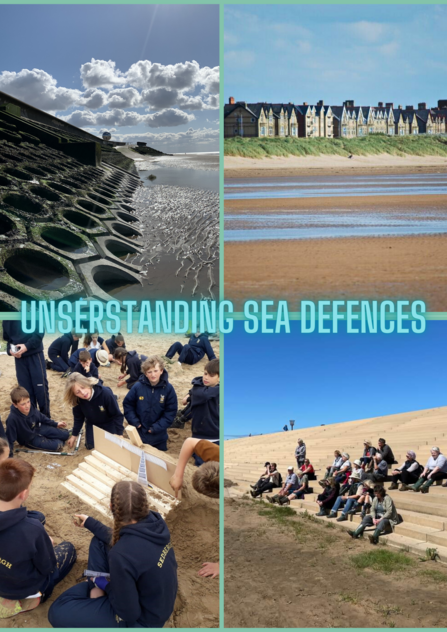
What’s the difference between a hard and soft sea defence? Discuss the different types of coastal defence (including sand dunes) and encourage debate about their effectiveness. Become a coastal engineer and create your own coastal defence project.
Practical conservation
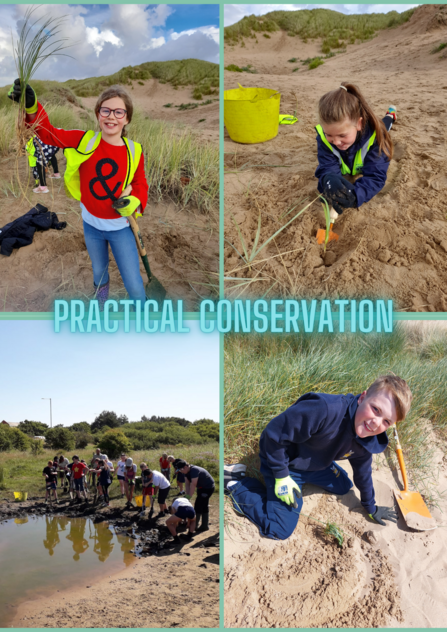
Give back to the environment by positively impacting the coast. Go on a Beach clean to remove dangerous litter from the beach or take part in sand dune conservation e.g. planting dune grasses or removing invasive non-native species. This topic can be used towards Duke of Edinburgh or John Muir Awards.
Environmental art
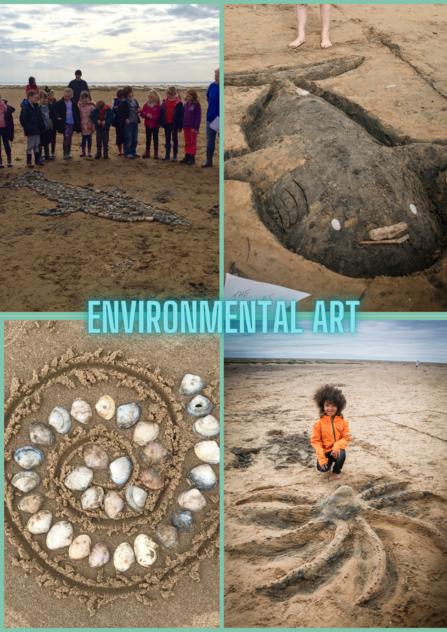
Collect natural materials and use these to create a sandy masterpiece. Students can learn more about marine animals by creating their own life-size UK coastal species, or it can be used to learn about artists such as Andy Goldsworthy.
Survival Skills
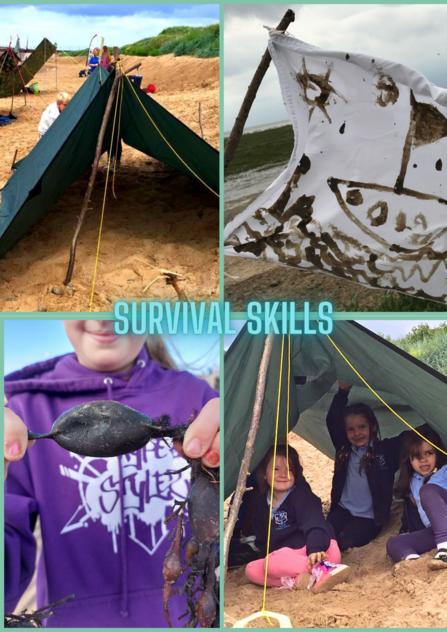
Oh no! You’re stranded on a desert island and must figure out a way to survive. Look for natural materials to help you. Build a shelter to protect you from the storm. Discuss how animals who live in this environment are adapted to living here, and how we could adapt to survive.
Surveying
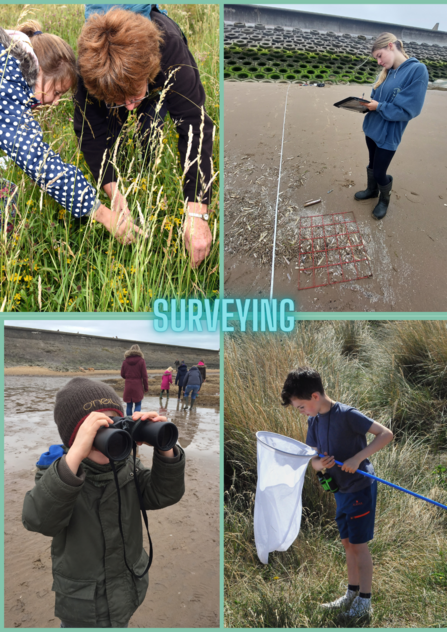
Use of a range of different survey techniques to observe, identify and record coastal species or features. Surveys include: Shoresearch (intertidal marine flora & fauna), coastal vegetation, invertebrates, or sand dune succession.
Within these activities children will also develop primary skills such as team working, citizenship, basic instincts, confidence in an outdoor setting, emotional intelligence, social skills, health and safety initiatives, sustainability, appreciation and understanding of the coast.

"I work for an inner-city school with high deprivation and for some children, this trip is their first time on a beach. The staff’s friendly and welcoming nature make them an instant hit with the children. The staff are incredibly knowledgeable and each lesson is carefully planned through fun games and play. Each year, our children return from their trip exhausted, full of sand and ‘buzzing’ about the beach with ideas of how to make our world a better place - A true learning experience!”

Find out more
Click on the tabs below to find out more information
Dates
We're thrilled that our Beach School programme is incredibly popular, often selling out 8+ months in advance for the spring/summer months and 3-4 months in advance for autumn/winter. Due to this high demand, sessions beyond these time frames may be limited, and we want to manage expectations accordingly. However, please feel free to send us an email, as we occasionally have cancellation slots available.
The tide timetables for the following academic year (September–July) are typically released around September. To secure a booking for your school, we encourage teachers to email us as soon as possible in September, as availability fills up very quickly. By the end of September, we are usually fully booked for the entire academic year.
We appreciate your understanding and look forward to the possibility of accommodating you!
Cost
- Full day = £500 for a class of up to 35 students - £15 per additional student up to a maximum of 60 students.
- Half-day = £250 for a class of up to 35 students - £7.50 per additional student up to a maximum of 60 students.
Costs include staff, session planning and delivery (including all session plans and risk assessments), and all equipment. Our delivery staff are FSC Beach School practitioner certified, My Wild Beach certified, and have over a decade of experience of Beach School delivery on the Fylde Coast.
Booking
To enquire about a Beach School booking, please email us. Please try to include as much information as possible to enable us to best respond to your booking enquiry.*
*Please try to include the name of the education setting, number of students attending, year-group/age range of students, possible dates/months of interest, whether you would like a half-day or full-day session, which topic(s) from the list above you are interested in. Many thanks!

Our Beach School Vision
Historically, beaches have drawn diverse crowds for various reasons. While those with easy access to local coastlines generally frequent them regularly, what about those without such accessibility? We advocate for every child to experience the marvels of our beautiful British coastlines. Our mission is to eliminate this barrier and offer children the chance to visit, learn, and develop an appreciation for the beach. Through hands-on, inspirational learning experiences, we're witnessing the positive impact outdoor education has on children.
We firmly believe that if a child hasn't had the opportunity to play and learn at the beach, they won't develop a connection to their local coastline. Without this connection, the next generation may lack the passion needed to conserve and protect our coastal environments in the future.
11% of under 14’s have never visited a British beach
Not only that, but 64% of children play outside less than once a week. With just five minutes of 'green' exercise being proven to improve mental wellbeing, it is important that all children have the opportunity to explore their local coastline.

Contact Us



















